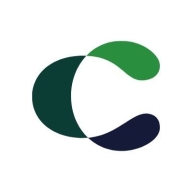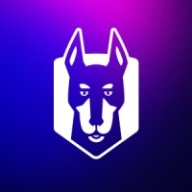

Contrast Security Assess and Snyk compete in the application security landscape. Currently, Snyk holds a competitive edge due to its expansive feature set, although Contrast Security Assess is appreciated for its accessibility and cost-effectiveness.
Features: Contrast Security Assess offers real-time vulnerability assessments, integration within development pipelines, and a powerful interactive application security testing (IAST) feature. Snyk is known for its comprehensive vulnerability database, developer-centered tools, and flexibility in integrations with CI/CD systems.
Room for Improvement: Contrast Security Assess could enhance its market presence and adaptability to different environments. Snyk's pricing may be restrictive, and improvements in initial usability would help streamline deployment.
Ease of Deployment and Customer Service: Contrast Security Assess provides smooth deployment fitting existing workflows and robust customer support. Snyk's deployment is more complex due to its extensive capabilities, but it offers substantial resources to assist users through its broader scope.
Pricing and ROI: Contrast Security Assess emphasizes cost efficiency and competitive pricing with noticeable savings. In contrast, Snyk justifies a higher initial cost with substantial ROI, thanks to its expansive security coverage and insights.
| Product | Market Share (%) |
|---|---|
| Snyk | 5.6% |
| Contrast Security Assess | 1.3% |
| Other | 93.1% |

| Company Size | Count |
|---|---|
| Small Business | 2 |
| Midsize Enterprise | 3 |
| Large Enterprise | 6 |
| Company Size | Count |
|---|---|
| Small Business | 21 |
| Midsize Enterprise | 9 |
| Large Enterprise | 21 |
Contrast Security is the world’s leading provider of security technology that enables software applications to protect themselves against cyberattacks, heralding the new era of self-protecting software. Contrast's patented deep security instrumentation is the breakthrough technology that enables highly accurate assessment and always-on protection of an entire application portfolio, without disruptive scanning or expensive security experts. Only Contrast has sensors that work actively inside applications to uncover vulnerabilities, prevent data breaches, and secure the entire enterprise from development, to operations, to production.
Snyk excels in integrating security within the development lifecycle, providing teams with an AI Trust Platform that combines speed with security efficiency, ensuring robust AI application development.
Snyk empowers developers with AI-ready engines offering broad coverage, accuracy, and speed essential for modern development. With AI-powered visibility and security, Snyk allows proactive threat prevention and swift threat remediation. The platform supports shifts toward LLM engineering and AI code analysis, enhancing security and development productivity. Snyk collaborates with GenAI coding assistants for improved productivity and AI application threat management. Platform extensibility supports evolving standards with API access and native integrations, ensuring comprehensive and seamless security embedding in development tools.
What are Snyk's standout features?Industries leverage Snyk for security in CI/CD pipelines by automating checks for dependency vulnerabilities and managing open-source licenses. Its Docker and Kubernetes scanning capabilities enhance container security, supporting a proactive security approach. Integrations with platforms like GitHub and Azure DevOps optimize implementation across diverse software environments.
We monitor all Application Security Tools reviews to prevent fraudulent reviews and keep review quality high. We do not post reviews by company employees or direct competitors. We validate each review for authenticity via cross-reference with LinkedIn, and personal follow-up with the reviewer when necessary.